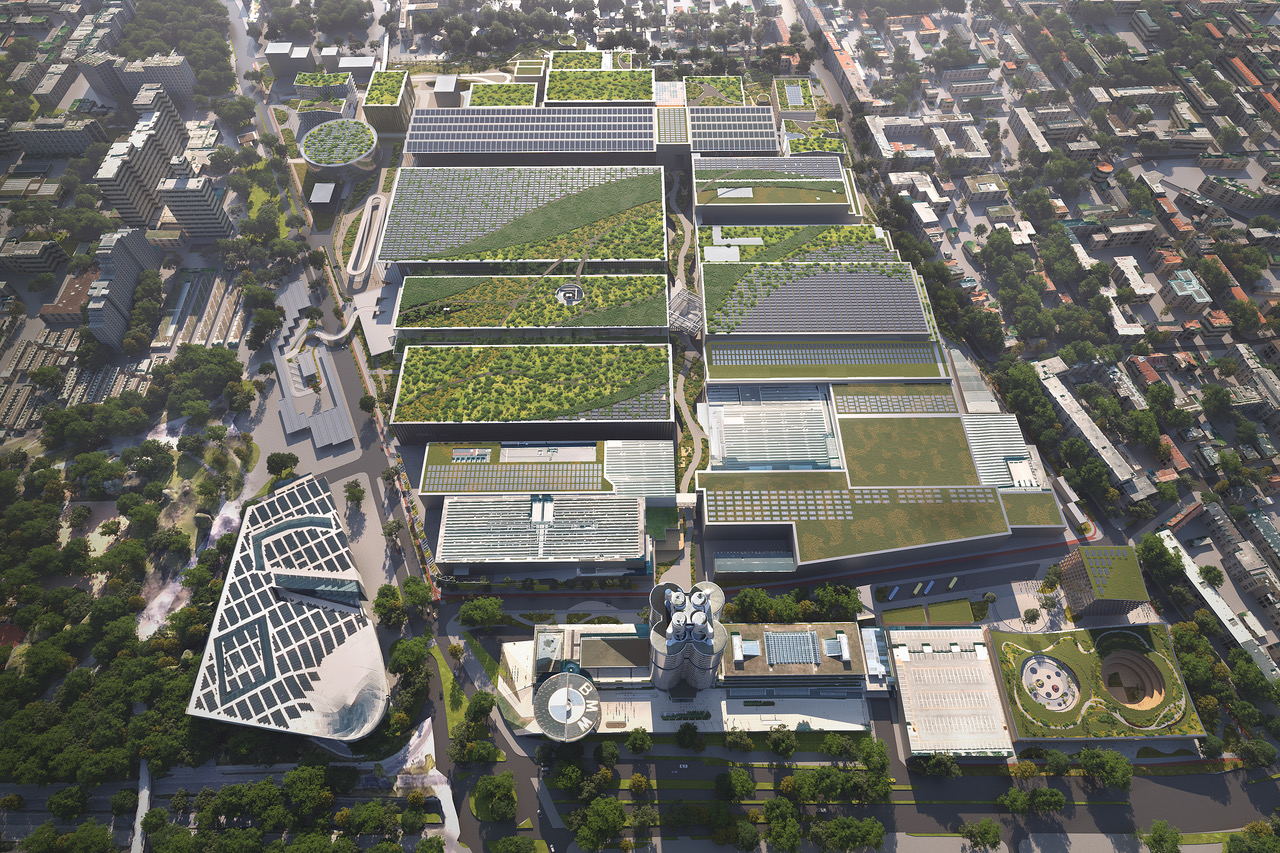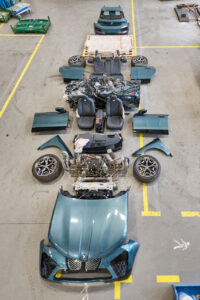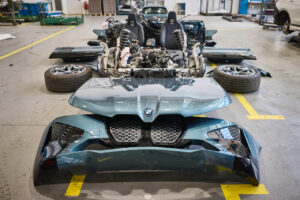As the automotive industry continues to strive towards a more sustainable, planet-friendly future, brands are transforming their business models to accommodate the developing needs of consumers and also ensure they are working in the most resourceful way that also helps to preserve our planet.

One of those is the BMW Group which set out ambitious sustainability goals to drive forward the company’s transformation. The German brand is working towards the goal of achieving climate neutrality by 2050, something that can be achieved by recycling raw materials in a circular economy to achieve the best possible resource efficiency.

“We are consistently driving the issue of sustainability with our innovations,” says Thomas Becker, Head of Sustainability and Mobility at the BMW Group. “The current raw materials debate also validates our drive towards a circular economy. We want to make the best possible use of the raw materials in our end-of-life vehicles and recycle them in the production of new vehicles. We will continue to reduce CO2 emissions and conserve natural resources through maximum energy and raw material efficiency.” In the short term, the vehicle manufacturer is working towards targets of reducing its CO2 emissions by 40 per cent per vehicle by 2030 across the entire value chain, compared to 2019 values. One of the key steps in improving the environmental impact of the industry is to focus on the cars themselves.

The BMW Group is consistently driving forward the electrification of its entire fleet. By 2030, at least one in two cars sold by the BMW Group is to be fully electric and the MINI and Rolls-Royce Motor Cars brands will offer only fully electric vehicles from the beginning of the next decade. “However, sustainability means much more for the BMW Group than merely building and selling electrically powered vehicles,” adds Becker. “Only a comprehensive sustainability approach from resource to recycling actually achieves a bottom-line reduction of CO2 emissions.”
With the increased switch to electric engines, especially in city cars, this transformation is imminent. But there are more ways to reduce carbon footprint and lessen the impact the industry is having. An average of almost 30 per cent of BMW Group vehicles are already made from recycled and reused materials today, so-called “secondary raw materials”. In the longer term, the “Secondary First” approach aims to increase this figure to 50 per cent. CO2 savings in the supply chain are becoming enormously important as e-mobility ramps up, especially in view of the energy-intensive production of high-voltage batteries. With that in mind, the BMW Group aims to buck the trend by reducing CO2 emissions in the supply chain by 20 per cent by 2030, compared to 2019 values, and by as much as 80 per cent in production. The Group’s network is already carbon net-neutral thanks to selected offsetting initiatives.

These initiatives include using “Green Steel” which will reduce CO2 emissions by up to 95 per cent. The Group has also been sourcing aluminium from the UAE since February 2021 using electricity generated from solar energy. From 2024 onwards, all cast aluminium wheels for the BMW and MINI brands will also be produced using only green electricity. Carbon dioxide emissions are also being continuously reduced in the steel supply chain. From 2025 onwards, the BMW Group will purchase CO2 -reduced steel that is produced not using fossil-based raw materials such as coal but instead using natural gas or hydrogen and green electricity. Making the steel in this way reduces CO2 emissions by up to 95 per cent. This will reduce CO2 emissions by up to 400,000 tonnes per year.
The brand is also using innovative recycling processes as the basis for an effective circular economy. By reusing and recycling materials from up to 10,000 used cars every year, materials are put back into the production process and given a second life. The vehicles are dismantled in a standardised process that focuses on identifying reusable components as well as materials that are suitable for recycling. Innovative methods are also used to recycle high-voltage batteries from electrified vehicles.

And finally, when it comes to waste, the brand has established closed loops for steel and aluminium between its production sites and suppliers. As a result, around 70 per cent of the steel waste from the pressing plants and the aluminium residues are reused through a direct circular economy. The Group has reduced CO2 emissions attributable to vehicle production by more than 70 per cent since 2006 and all plants in the international production network have been CO2 neutral since 2021. Alongside this, water consumption and waste generation have also been continuously reduced.
While these are small steps by one company, they are giant leaps in innovation, environmental processes and the protection of our planet.















